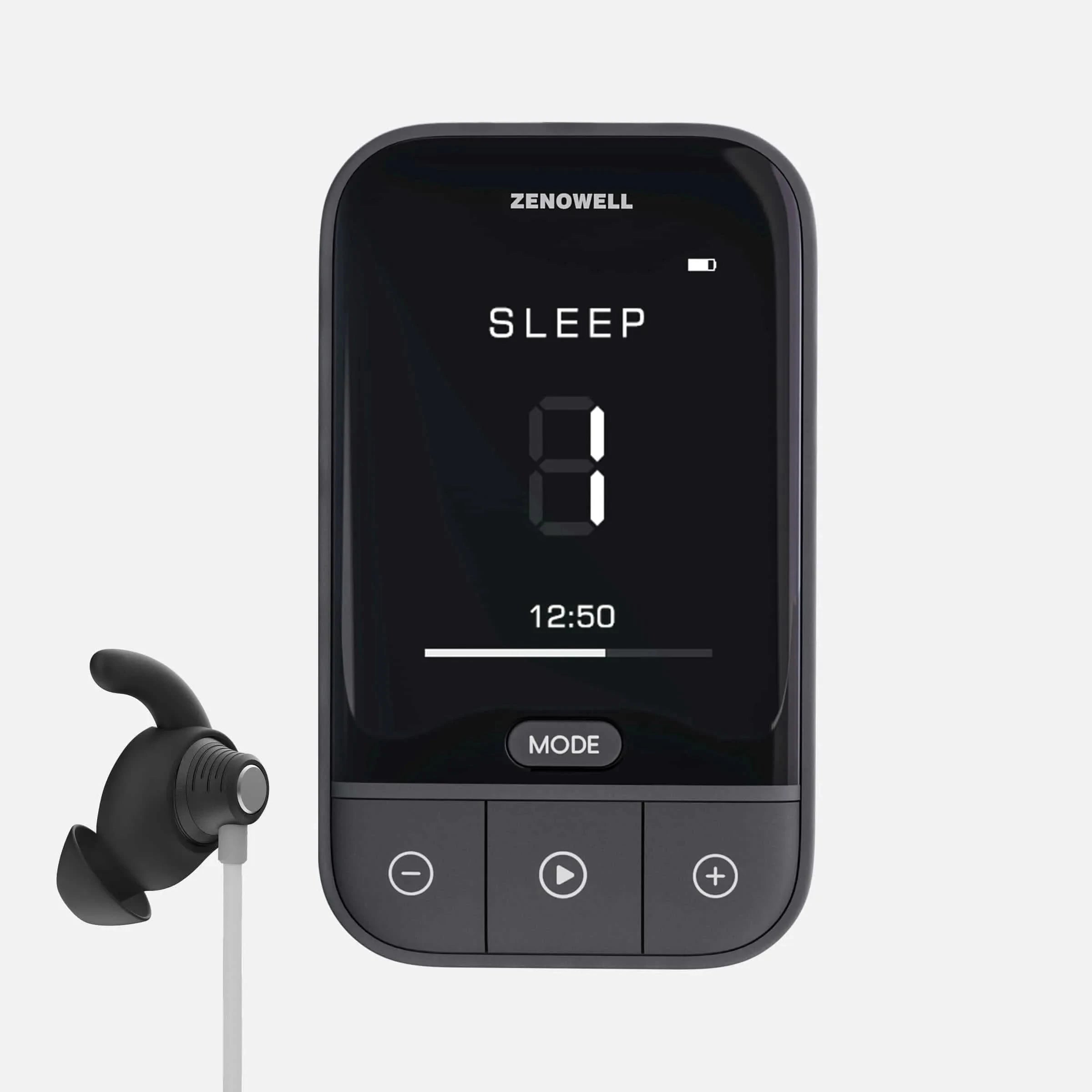ZenoWell vagus nerve stimulation supports "A Strong Vagus Nerve = A Strong Immune System"
Vagus nerve stimulation (VNS) has been widely recognized as a groundbreaking neurostimulation technique used to treat conditions like epilepsy and depression. Recently, researchers have discovered its potential in managing immune diseases, offering a new, non-invasive approach to improving patient outcomes. A recent review published in the International Journal of Surgery highlights the transformative effects of VNS in treating immune-related diseases.

What is Vagus Nerve Stimulation?
The vagus nerve is one of the most important cranial nerves, connecting the brain to major organs like the heart, lungs, and digestive system. By stimulating this nerve, VNS can influence key bodily functions, including inflammation control, pain relief, and emotional regulation. There are two main types of VNS:
Implantable Vagus Nerve Stimulation (iVNS): This involves a surgical procedure to implant a device that stimulates the vagus nerve.
Transcutaneous Vagus Nerve Stimulation (tVNS): A non-invasive method that uses external devices to stimulate the nerve through the ear (transcutaneous auricular vagus nerve stimulation, taVNS) or neck (transcutaneous cervical vagus nerve stimulation, tcVNS).
How Does VNS Help with Immune Diseases?
VNS works by calming the immune system and restoring balance in the body. Its anti-inflammatory effects play a key role in managing immune diseases. By activating pathways in the brain and nervous system, VNS can reduce the production of inflammatory chemicals, such as TNF-α and IL-6, which are often elevated in autoimmune conditions. Additionally, it helps repair the gut lining and promotes healthy communication between the brain and gut, an essential factor in immune regulation.
VNS also has the ability to relieve pain and improve mood. Chronic pain and emotional distress are common in immune diseases, and VNS targets the brain regions responsible for processing pain signals and emotions, providing relief and promoting well-being.
VNS and Splenic Anti-Inflammatory Pathway
The vagus nerve plays a key role in controlling the immune system through the cholinergic anti-inflammatory pathway (CAP), which involves the spleen as an important organ. This pathway is part of the body’s inflammatory reflex, a system where the nervous system detects inflammation and works to keep it under control. The process starts when the vagus nerve senses inflammatory signals, such as high levels of cytokines like TNF-α and IL-6 in the blood or tissues. These signals are sent to the brain, specifically to an area called the nucleus tractus solitarius (NTS) in the medulla. The NTS processes these signals and activates outgoing vagus nerve fibers through another brain region called the dorsal motor nucleus (DMN).
Once activated, these outgoing signals travel to the splenic nerve, which is part of the sympathetic nervous system. The splenic nerve releases a chemical called norepinephrine (NE), which interacts with specific receptors on immune cells in the spleen called β2 adrenergic receptors. This triggers special T cells in the spleen to release acetylcholine (Ach), a neurotransmitter that binds to α7 nicotinic acetylcholine receptors (α7nAchR) on immune cells like macrophages. When these receptors are activated, they block the production of inflammatory molecules such as TNF-α, IL-1β, and IL-6, helping to reduce inflammation throughout the body and restore immune balance.
Immune Diseases That Can Benefit from VNS
VNS has shown promising results in treating several immune-related conditions.
For rheumatoid arthritis, it helps reduce joint inflammation and improve mobility by lowering inflammatory markers. In inflammatory bowel diseases like Crohn's disease and ulcerative colitis, VNS plays a dual role by calming the immune response and repairing damage to the intestinal lining. It can also help patients with irritable bowel syndrome by improving gut motility, reducing abdominal pain, and alleviating stress and anxiety.
Patients with fibromyalgia have reported significant improvements in pain management and overall quality of life after VNS therapy. Other conditions, such as Sjögren's syndrome, multiple sclerosis, and systemic lupus erythematosus, have also shown positive responses to VNS treatment, making it a versatile option for managing various autoimmune diseases.
Why Choose VNS?
VNS offers several advantages over conventional treatments. It provides long-term benefits, particularly in managing chronic inflammation, without the dependency on medications. Its non-invasive nature makes it a safer option for many patients, with fewer side effects compared to traditional therapies. For individuals who have not responded well to medications, VNS opens up a new avenue for effective treatment.
The Future of VNS Therapy
Although VNS holds great promise, there's still much to learn. Researchers are working to optimize treatment settings to make it more personalized for each patient. Larger clinical trials are needed to confirm its long-term safety and effectiveness. Innovations in device design are also underway, with the goal of creating non-invasive, portable, and affordable options to make VNS accessible to more people.
Looking ahead, VNS may not only be used as a standalone therapy but also as a complementary treatment alongside traditional medications. Its ability to work synergistically with other therapies could further enhance outcomes for patients with immune diseases.
Conclusion
Vagus nerve stimulation is transforming the way we approach immune disease treatment. By harnessing the power of the nervous system, this therapy offers a safe and effective alternative for patients struggling with chronic conditions. As research and technology continue to advance, VNS has the potential to become a cornerstone in immune disease management, improving the lives of countless individuals.
Among all VNS approaches, taVNS stands out for its unmatched convenience, safety, and accessibility. Unlike implantable devices, taVNS uses external stimulation through the ear, making it easy to use anytime, anywhere.
If you're searching for innovative ways to manage immune diseases, taVNS might be the breakthrough you've been waiting for. Stay tuned as this exciting field continues to evolve.
Reference:
Liu, Jingjing, et al. "Clinical applications and mechanisms of vagus nerve stimulation in the treatment of immune diseases: a review." International Journal of Surgery: 10-1097.
















